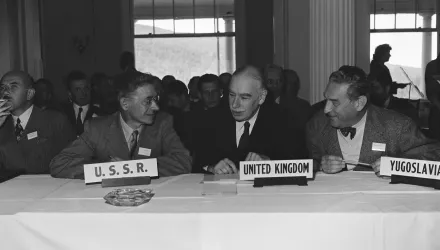International Security is America's leading peer-reviewed journal of security affairs.
Summary
Since the September 11 attacks, analysts and public officials have expressed growing concern about the potential of Muslim citizens and residents of the United States to plot attacks within the country’s borders—a phenomenon sometimes referred to as “homegrown” terrorism. To assess this apparent threat, it is necessary to examine what is known about the willingness and capacity of Muslim Americans to execute deadly attacks in the United States. Three conditions, either alone or together, could contribute to an increasing threat of homegrown terrorism. The first concerns what is known about the radicalization of Muslim Americans and whether a surge in arrests in 2009 indicates a growing trend in Muslim American terrorism. The second relates
to the capacity of aspiring militants to avoid detection as they prepare attacks. The third depends on the skills of aspiring terrorists and therefore their capacities to execute increasingly sophisticated attacks. The analysis should be generally reassuring to those concerned about Muslim homegrown terrorism. On both analytical and empirical grounds, there is not a significant basis for anticipating that Muslim Americans are increasingly motivated or capable of successfully engaging in lethal terrorist attacks in the United States.
Brooks, Risa. “Muslim 'Homegrown' Terrorism in the United States: How Serious Is the Threat?.” Fall 2011



